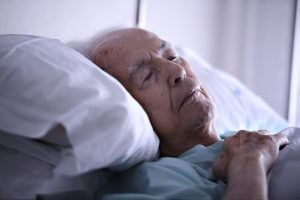If your family experienced the loss of an elderly loved one due to abuse or neglect in their nursing home, you could be entitled to financial compensation. Filing a wrongful death lawsuit against a nursing home is a complex legal matter. It can also be an emotional one for your family, which can make hiring a local attorney beneficial.
The right attorney brings a high level of competence and professionalism to the legal situation, so that you have the peace of mind to mourn the loss of your loved one, knowing that justice is being pursued. Your attorney will ensure all legal parameters are met and that your case follows the appropriate steps. To prepare your case, you need to identify the at-fault party, prove the negligence that caused your loved one’s demise, collect evidence, and navigate your state’s legal system. A wrongful death lawyer can handle all of these steps for you, while you focus on caring for your family.
Understand the Many Moving Parts of a Wrongful Death Lawsuit
According to the Journal of the American Medical Directors Association, as many as 24% of deaths in the U.S. occur in nursing homes. Although many of these deaths will have natural causes, those that are caused by negligence could mean your family has a right to compensation.
In those cases, filing a wrongful death lawsuit can mean:
- Review of your case with a lawyer
- Investigation into the cause of death
- Fact and evidence gathering
- Filing your case in the local court
- Consulting with relevant expert witnesses
- Discovery and interrogatory sessions
If your case proceeds to trial, your lawyer will prepare evidence and exhibits. The attorney will also prepare any supporting witnesses who will testify on your behalf. If a fair settlement agreement cannot be achieved, a judge or jury will hear both sides and render a final decision.
Ensure the Right Family Member Files Your Lawsuit
While the loss of a loved one will affect every member of your family, your state will determine which family members can file a wrongful death action. In most cases, this will include the decedent’s:
- Spouse
- Parents
- Children
Other family members might also be eligible. The best way to understand who should file suit for your family is to review your familial relationship with a lawyer familiar with the laws of your state.
Your Right to File a Lawsuit Has a Time Limit
Grieving and coping with the loss of an elderly family member can be heart-wrenching. Along with making appropriate final arrangements, it can also be a time-consuming process. When you are considering filing a lawsuit against the nursing home, you have a limited time to do so.
Your state will impose a statute of limitations that gives you a deadline for how long after the death, you have to file a claim. In Maryland, the statute of limitations for a wrongful death is always three years. Non-compliance could mean you inadvertently forfeit the right to file your lawsuit at all. It is crucial not to procrastinate–contact an attorney immediately to ensure your case is filed on time, if possible.
Establish the Legal Basis of Wrongful Death
Wrongful death is a type of personal injury lawsuit. Generally speaking, that means your loved one’s demise would have to have been the result of negligence. To establish negligence existed, you must prove that the nursing home:
- Owed your loved one a duty of care
- Breached their duty to provide that duty of care
- Caused your loved one’s demise
- Caused financial consequences
These facts can be proven with a comprehensive investigation and a collection of compelling evidence. The sooner you discuss the situation with an attorney, the better the chances of obtaining unspoiled evidence and fresh witness accounts.
Collect Evidence That Supports the Merits of Your Case
A robust evidence file that demonstrates nursing home negligence and liability could give you and your attorney the leverage necessary to negotiate a fair settlement versus going to trial. When you are represented by a lawyer to build your evidence file, they will collect:
- Medical records
- Autopsy findings
- Death certificate
- Witness statements
- Photos and videos
Evidence collection requires the investigation of the event and the nursing home itself, which has a financial incentive not to cooperate. The lawyer who handles your case should have nursing home case experience to ensure no evidence is hidden, overlooked, or mishandled.
Determine the Monetary Value of Your Case
Although no amount of financial recovery can compensate you for the loss of a family member, you are entitled to hold the at-fault individuals or businesses financially accountable for all negligent, careless, or reckless actions.
When your loved one’s nursing home is held accountable for their demise, your family is entitled to recover a wide range of damages. These can include:
- Funeral and burial expenses
- Pain and suffering
- Loss of companionship
- Loss of guidance and support
This list is in no way exhaustive. Just as no two families are exactly alike, your recoverable damages can also vary greatly. Your attorney will explain your specific damages and ensure your case is not undervalued or underpaid.
Call Anytime for a Free Review of Your Wrongful Death Case
If someone you love died due to abuse or neglect in the facility you trusted with their daily care, our law firm will help you file a wrongful death lawsuit against their nursing home. Contact our case review team at Brown & Barron to find out how hard we fight for the compensation you are entitled to.


